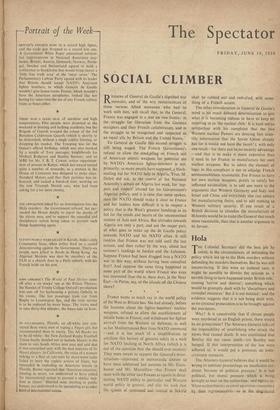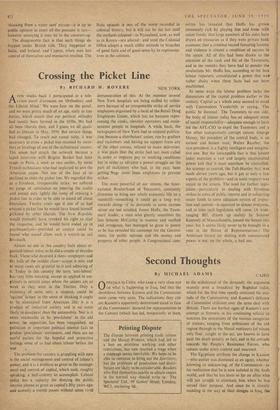Hola
THE Colonial Secretary did the best job he cold, in the circumstances, of defending the policy which led up to the Hola murders without
defending the murders themselves. But he was still unconvincing. If this were an isolated case, it might be possible to dismiss the episode as 'a terrible thing to have happened under British rule,' causing 'horror and distress'; something which would be promptly dealt with by 'disciplinary and remedial measures.' But it is not isolated: and the evidence suggests that it is not being dealt with, as no criminal prosecution is to be brought against the murderers.
Why? Is it conceivable that if eleven people were murdered in an English prison, there would be no prosecution? The Attorney-General talks of the impossibility of establishing who struck the blows that caused death. It was established that Bentley did not cause death—yet Bentley was hanged. If this interpretation of the law were adhered to, it would put a premium on indis- criminate massacre.
The Attorney-General believes that it would be wrong to institute proceedings on insufficient evi- dence 'because of political pressure.' It is not political, but moral pressure which is being brought to bear on the authorities: and rightly so. When authorities try to cover up crimes committed by their representatives—as in the disgraceful 'drinking from a water cart' excuse—it is up to public opinion to exert all the pressure it can— however annoying it may be to the coverers-up.
The disagreeable fact is that such things do happen under British rule. They happened in India, and Ireland, and Cyprus, when men lost control of themselves and massacres resulted. The Hola episode is one of the worst recorded in colonial history, but it will not be the last until the methods adopted—in Nyasaland, now, as well as in Kenya—are altered: and until the Colonial Office adopts a much stiffer attitude to breaches of good faith and of good sense by its representa- tives in the colonies.







































 Previous page
Previous page